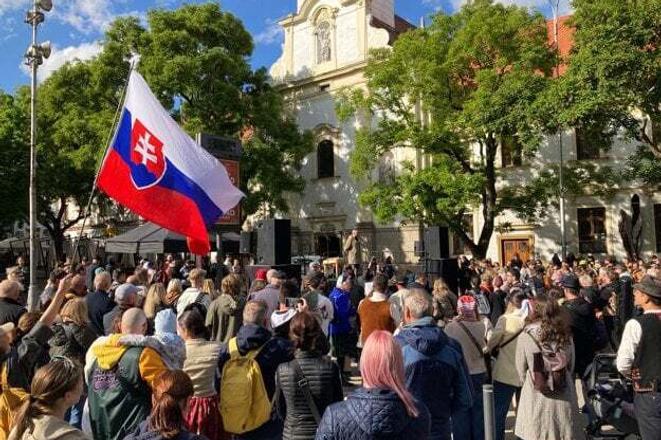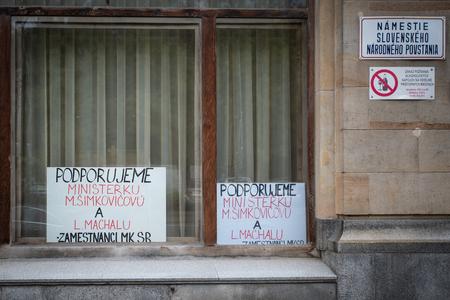Culture Minister Martina Šimkovičová (SNS nominee) often presents herself as a supporter of folklore and tradition. She frequently appears in traditional folk dress and has even suggested that folk costumes (known as kroje) could be worn more often in everyday life.
At the Východná folklore festival last July, she declared, “Folklore is the soul of our nation, a mirror of our roots and a heritage we must pass on to future generations with love and pride.” However, her presence at another festival in Terchová the following month was met with boos, and her choice of folk costume was widely criticised.
Despite her public support for tradition, several folklore festivals were forced to cancel or delay events earlier this year due to funding hold-ups at the Slovak Arts Council (FPÚ), a state agency that supports cultural activities. The delays were linked to increased political interference from the Culture Ministry. Although funding for most folklore projects was finally approved in May, the uncertainty caused disruption across the sector.
On 15 May, in response to the ministry’s handling of cultural funding, folklorists staged a protest in front of the Culture Ministry in Bratislava. Around 650 people took part, including families with children. Some wore traditional costumes in a symbolic gesture.
Folklorists speak out
“The way Martina Šimkovičová is dismantling the cultural environment doesn’t seem to bother the government,” said Lucia Kumštová, a dancer and leader of the folklore ensemble Kumšt. She criticised the silence of President Peter Pellegrini and pointed out that MP Roman Malatinec, a folklorist himself, had voted for changes that weakened the FPÚ.
Protest organisers criticised what they described as unprofessional and non-transparent leadership at the ministry. Their joint statement was signed by over 1,280 people involved in traditional culture.
“We don’t need the minister’s personal view of what counts as authentic Slovak culture, nor her presence at events in pseudo-traditional dress,” they said.



